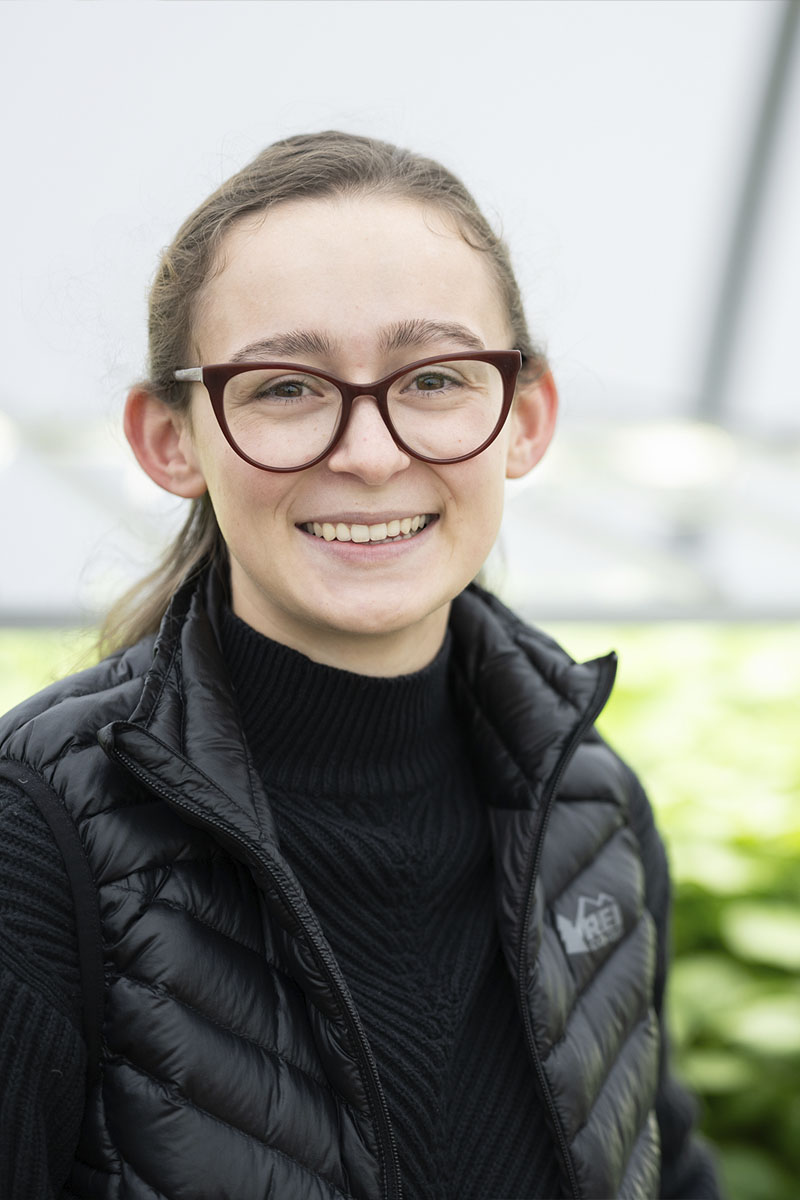Positive Yields
When Myla Crites was growing up in Pasco, Washington and thought of her future, she didn’t see herself attending college. She had thought briefly of becoming a nurse, but an experience trying to give her cat a shot cured her of that desire. Since she didn’t have a specific career in mind, she thought college would be a waste of time and money.
When Crites told her mother that she planned to enter the work force after high school rather than attend college, her mother encouraged her to explore what was available before deciding. They discussed Crites’ interests and kept returning to a high school horticulture class she had enjoyed.
Crites didn’t realize that a degree in horticulture was an option. Luckily, her now-husband, Greydon, had decided to attend the University of Idaho for a medical sciences degree. She began exploring options at U of I and discovered the horticulture and urban agriculture degree — exactly what she was looking for.
Helping Farmers
Crites enrolled at U of I in spring 2021 and by October of that year had accepted a part-time job with U of I’s Seed Potato Germplasm Program working at the hydroponics greenhouse. In this role she was responsible for planting, watering, monitoring and harvesting potato plantlets.
“The whole process of tissue culture, I had no idea that was a thing,” she said. “We can make so many plants really quickly and that was really cool to see. It taught me a whole other aspect of farming that I didn’t realize.”
Crites first gained exposure to agriculture through her parent’s business, AirTrac Inc., an aerial application and crop dusting company. She began working for the company at age 16 as an office coordinator.
Although she enjoyed the experience of working in the Seed Potato greenhouse, Crites missed the face-to-face interactions she had with farmers while working for her parents. Some of her favorite classes at U of I also happened to be those that focused on the use of pesticides.
“All of the professors here know what they are talking about. People like Joan Campbell, her research into herbicides is legendary,” Crites said. “She knows what she’s talking about and I think that’s cool, having faculty members that are active in the agriculture industry. They know the struggles of farmers, they know the climate, what people are going through.”
When she started thinking about her post-graduation plans, Crites decided to return to her roots. She will earn her degree in December 2023 and has accepted a full-time position with Helena Agri-Enterprises in Pullman, Washington as an office coordinator where she will once again serve as a resource to farmers. She will also be working with companies like AirTrac Inc., selling the necessary chemicals.
“I feel like pesticides are an incredible tool that we have been given,” she said. “As farmers we are tasked with feeding the world. In having the best yield and best quality product we can, it directly translates into people being able to eat that food. With pesticides we have the ability to maximize our yield, maximize our quality by eliminating pests and anything that can damage our crops.”
Looking back on her time at U of I, Crites knows that going on to college was the right decision.
“I feel like I’ve grown a lot since being here. My critical thinking skills have changed a lot,” she said. “I’m glad to have come here. I’m glad that I got the opportunity to experience this whole thing. I realize now that I would have missed a lot if I hadn’t gone to college, especially this one.”

Article by Amy Calabretta, College of Agricultural and Life Sciences
Photos by Garrett Britton, Visual Productions
Published December 2023







